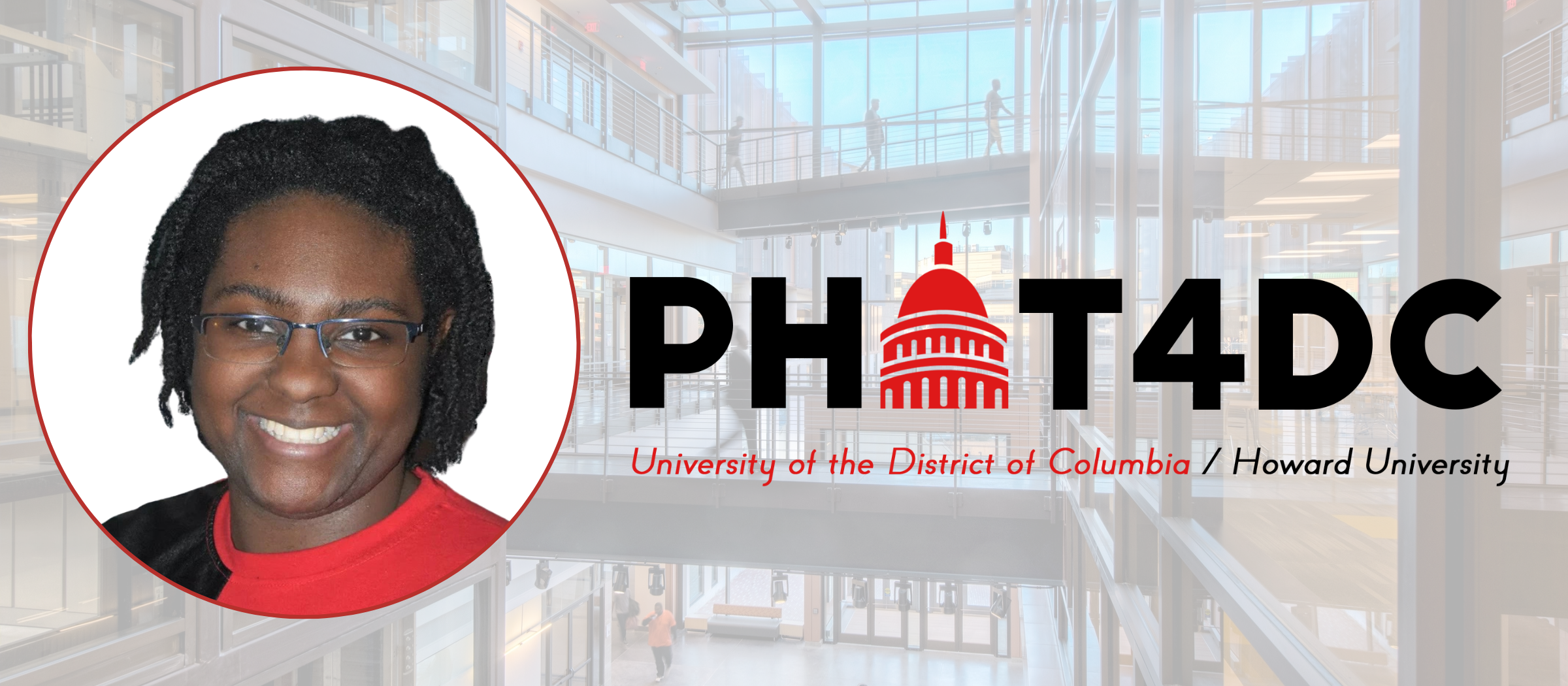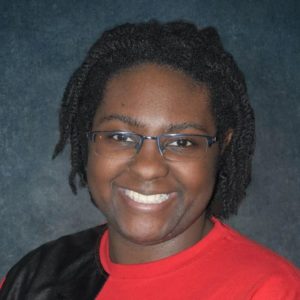
Workforce Development offers healthcare technology training at no cost
Workforce Development offers healthcare technology training at no cost

Danielle Carroll represents the face of a new generation being trained for healthcare technology jobs in high demand. She is UDC’s student ambassador for the Public Health Informatics Technology (PHIT4DC) Workforce Diversification Program, which provides healthcare technology training and certification for underrepresented communities at no cost.
Carroll is a senior computer science major (’24). She has already had an internship and is working full-time as an IT specialist at Zane Networks, a provider of healthcare transformation services and solutions in Washington, DC.
Born and raised in DC, the 26-year-old is excited about the PHIT4DC program, which has allowed her to strengthen her healthcare-technology-specific knowledge and skills. The online program offers a semester-long curriculum, group projects and training leading to sitting for certification. Carroll is a part of the inaugural cohort of 46 students who will get their certification in December.
“The certification will definitely help me better understand the work that I do,” Carroll said. “For me as a programmer, I didn’t understand the healthcare languages. The work I do now involves healthcare coordination and patient data and the information they need to collect for their records and billing purposes. I do a lot of hardware and software walkthroughs. I was asked for healthcare codes that I didn’t necessarily know. The classes have been helpful with the acronyms.
“The classes have also helped with my work at Zane Networks. It expands upon what I am doing now. I’m not just using my technical brain. I understand why we are doing this. We are also trying to revolutionize telehealth.”
The PHIT4DC program is supported by a $8.7 million grant from the Office of the National Coordinator for Health Information Technology (ONC) of the U.S. Department of Health and Human Services (HHS).
UDC is among 10 Minority-Serving Institutions (MSIs) selected for funding to increase the number of minorities in healthcare technology and data collection. The ONC’s goal is to train up to 4,000 people in public health technology during the four years of the grant.
“It was birthed out of the need for data from COVID-19,” said Charletta Washington, director of the PHIT4DC program at UDC. “Once we were faced with a global pandemic, the ONC realized that there weren’t enough data or people to collect it. It impacts how we track and treat patients as new diseases arise. There is a need to get more people involved, the intent was to increase representation from underrepresented groups who could be trained through workforce development.”
UDC is the primary grantee and works with Howard University to support teaching online courses and recruiting students. While the classes are online, students meet in person to work on projects. Dr. Marilyn Hamilton, dean of Academic Programs, Dr. Mashonda Smith, dean of Workforce Development & Lifelong Learning and Dr. Charletta Washington lead the PHIT4DC team at UDC.
The PHIT4DC program is offered at no cost to UDC students and District residents who are 18 and older, employed in any field, career changers, those in healthcare who want to enhance their skills, or residents interested in a pathway to further their education at UDC.
The program is being rolled out in phases, including 16 weeks of training and having individuals sit for the Healthcare Information and Management Systems Society certification, a global member-based society committed to reforming the global health ecosystem through information and technology.
The second phase is to encourage those interested in earning an associate degree at UDC to expand on the knowledge gained. Participants will also be supported in gaining internship opportunities or for those already working. The certification will enhance career opportunities in healthcare technology, medical billing and other areas of healthcare data collection and research.
Program partners include Zane Networks, which provides telehealth and remote patient monitoring platforms working with private and public sector clients to help transform health and hospital systems; the Chesapeake Regional Information System for our Patients (CRISP), which is the designated health information exchange serving the District of Columbia; and the District of Columbia Primary Care Association (DCPCA), a 25-year-old organization that works to create healthier communities through advocacy and the development of the infrastructure to support an equitable and integrated health care system for DC residents.
Other partners include the Department of Health Care Finance (DHCF), formerly the Medical Assistance Administration under the Department of Health, which is the District of Columbia’s Medicaid agency. UDC works with Howard University on the grant to provide additional instruction for PHIT4DC classes as the only other HBCU in the District.
“I would tell people to take advantage of PHIT4DC,” Carroll said.
“It is free, and you can get the actual experience that you want, whether you are an intern or someone looking for hands-on experience. You meet wonderful presenters and get experience on different platforms that you may hear about and would not have the opportunity to work in those systems.”